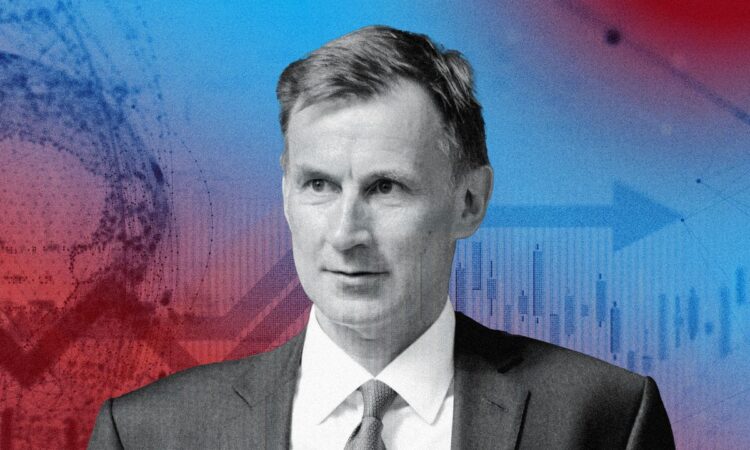
Britain could lurch from high inflation into a While Consumer Price Index inflation has fallen for the second consecutive month, “core inflation”, excluding commodity prices such as energy, remain stubbornly high at a time when wage increases have soared to a new record high.
He added: “What will concern the Monetary Policy Committee is that services inflation remained high, indeed it came in slightly above the BoE’s expectations. And that came on the back of yesterday’s very strong reading for private sector wage growth.
“The Bank of England has long been concerned about the link between pay and inflation in the services sector, and we think both are likely to prove quite sticky. So while we only expect one more 25bps [0.25 per cent] rate hike in September, we think we will need to wait until this time next year before we actually see bank rate cut.”
The reduction in the headline rate announced on Wednesday was part-driven by gas prices, which fell by 25.2 per cent – a record cut in one month – after earlier volatility sparked by the Russian invasion of Ukraine.
But at the same time, the cost of services rose to a 30-year record of 7.4 per cent – which amounts to the highest rate of increase since March 1992.
Pushpin Singh, senior economist at the Centre of Economics and Business Research (CEBR), said that “beyond the headline rate of inflation, other indicators show the persistence of price pressure in the economy”.
Labour and the Lib Dems have criticised Mr Sunak on inflation, but he may soon have another big problem
(PA Wire)
“The economy is still overheating, and this isn’t helped by elevated wage growth, which has the potential to exacerbate matters via a wage-price spiral,” he warned.
“It is likely that the prospect of interest rate cuts in the near-term is not a consideration for the Bank of England given this, and we only expect interest rates to be cut in May next year at the earliest,” he added.
And even when interest rates do start to come down, inflation will only fall in “a slow, gradual manner”, close to the Bank of England’s target of 2 per cent, by 2025, he said.
Last week, the National Institute of Economic and Social Research (NIESR) warned that the risk of a recession by the end of 2024 was now at 60 per cent.
Responding to Wednesday’s inflation figures, NIESR economist Paula Bejarano Carbo said: “Despite the welcome fall in the headline rate, we have yet to see a turning point in the underlying rate of inflation, which remains stagnant at around 7 per cent.”






